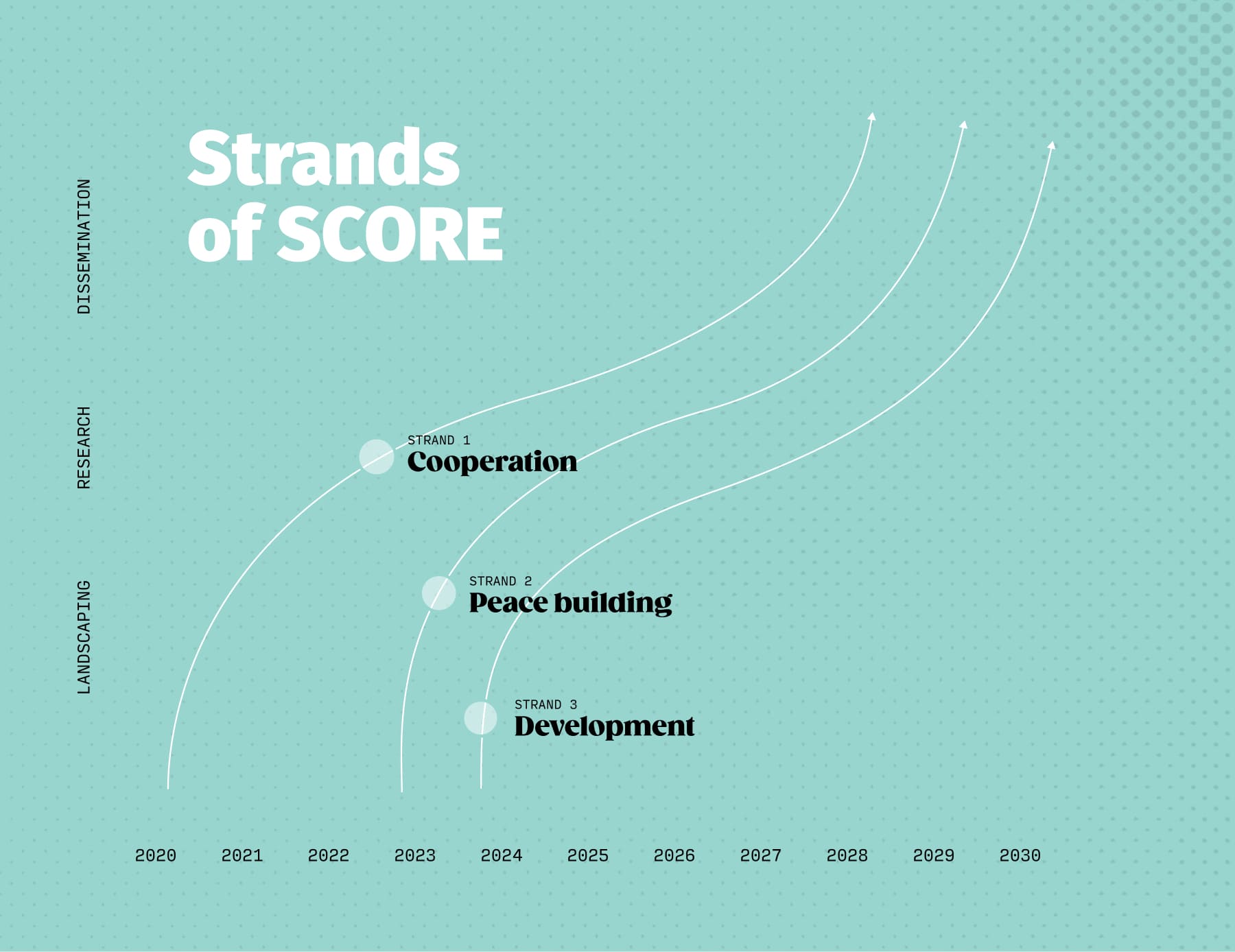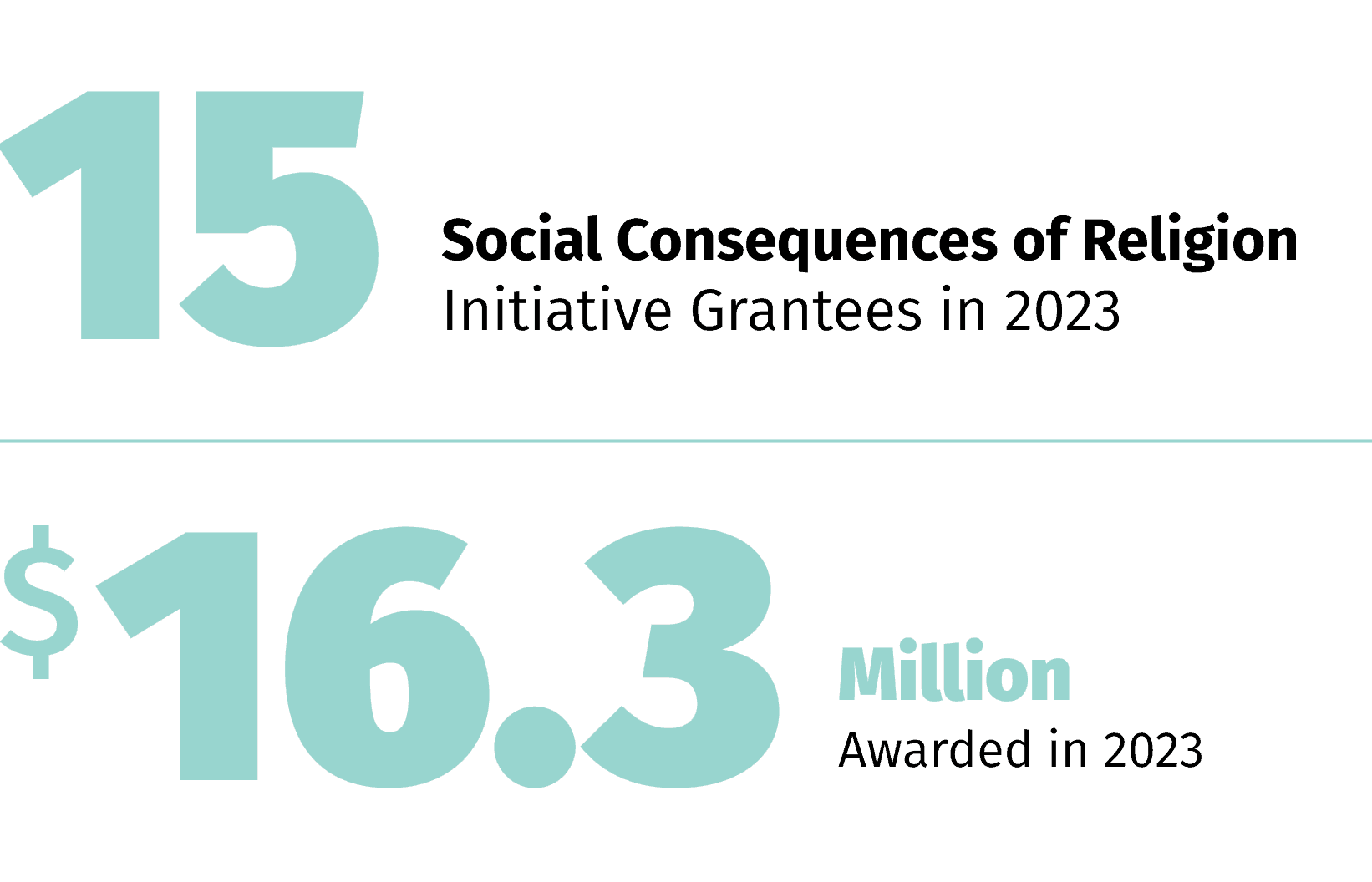In many parts of today’s world, religion is a touchy topic – something that often causes conflict, hostilities, or other negative outcomes. As a result, we’re apt to avoid talking about it with friends, neighbors, coworkers, and sometimes even family. And many people in many places insist that religion should be kept out of public life.
Yet, religions have always been part of human civilizations. What do we really know about the impact of religion on societies? And what might we learn if we seriously researched the subject?
Sir John Templeton regarded religious faith and practice as a dynamic, prosocial force — a transformative force for good in the world, part of and even a source of solutions to the wide range of problems we face, such as warfare, poverty, and prejudice.
Where and when does religion have positive versus negative effects? What might change if we understood the full range of the effects throughout the world? How do the outcomes vary across regions? How do they change over time?
To address important questions such as these, in 2020 we launched a groundbreaking research program focused on the social consequences of religion. The overall goal is ambitious and, we believe, essential for our time: to build a repository of data on the interconnected impacts and influences of religion in society. To accomplish this, we’ve invited leading social scientists, scholars of religion, and experts from across the globe to develop and conduct research projects in three thematic strands:
The research infrastructure spans three sequential stages of investigation:
The investigation into religion’s impact on cooperation and prosocial behavior is guided by several key objectives:
1) Prioritize research that tests causal claims.
2) Measure behavior versus self-reported measures of cooperation.
3) Attend to multiple time scales and levels of analysis.
4) Maintain scientific objectivity, following the data where they lead.
5) Test generalizability.
Projects will research cooperation within groups as well as among individuals. Other potential foci are how religion influences prosocial behavior throughout people’s lives and how culture determines the consequences of religion for cooperation.
The investigation into the types and impacts of faith-inspired peace initiatives that occur after a war is guided by these objectives:
1) Deepen the research base, including thorough attention to questions of causality.
2) Consider directions for better synthesis of existing research.
3) Expand methodological innovation and integration among adjacent fields and academic disciplines.
4) Prioritize research into peacebuilding efforts that offer potential improvements to the lives of people in post-war societies.
Projects include researching how best to weigh the social consequences of religious faith, practice, institutions, and ideas in post-war environments. A related consideration is how to account for their interaction with other social, economic, and political dynamics as well as how people who have lived through war see the effects.
The investigation into how religion factors into the causes of economic development is focused on putting theories and hypotheses to the test of science-based methods and measurements. Among its key objectives are:
1) Determine the most promising theoretical and empirical innovations in this area of research.
2) Establish how to better integrate academic research and policy work in economic development.
3) Gain insight into how scholarship can help create public influence on policymaking and recognition of religious variables.
Through a diversity of both qualitative and quantitative methods of data-gathering and collaboration across projects, we hope to create a valuable new repository of information. The hoped-for result is more insightful and productive conversations about the impact of religion in societies — what it’s been, what it is now, and, perhaps most important, what it could be going forward.



Good or Bad? Investigating the Social Consequences of Religion
In many ways the only way to answer that question is to answer “it depends.” But how might we be able to begin to understand if religions are part of the problem or part of the solution? What do we really know about the social consequences of religions, and what more can we learn about them? Many regard religious faith and practice as a dynamic, prosocial force—a force for good in the world, part of and even a source of solutions to the wide range of problems we face, like poverty and sickness. But religions are often associated with negative social outcomes like intolerance and conflict.
How can we increase the social dividends associated with religious faith and practice and reduce the negative effects that can occur when religions get mixed up with other factors, like fear or greed? Templeton Religion Trust’s Social Consequences of Religion initiative — or SCORE, is building a repository of data on the various interconnected impacts and influences of religion in culture.